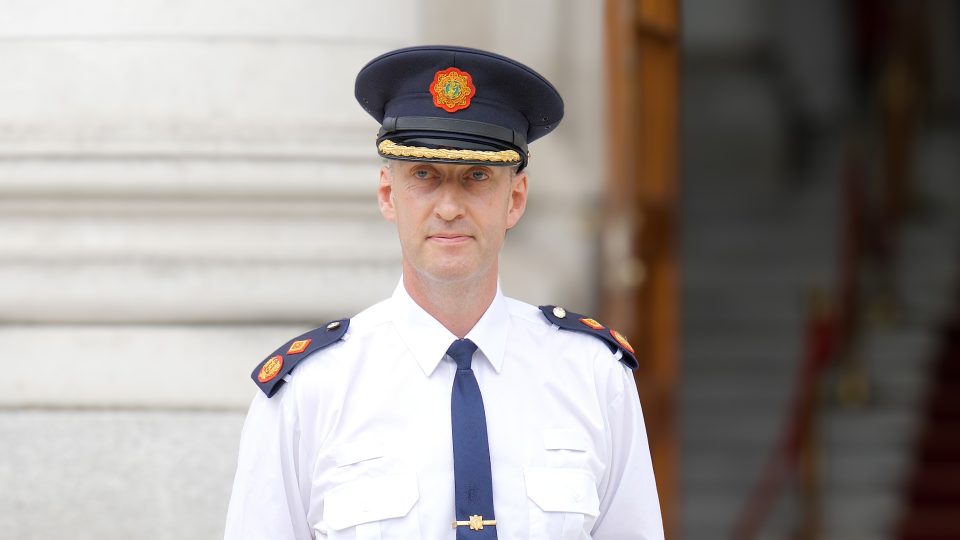“The suspect is an Irish national”….. “The motive for the attack remains unclear”.
Those were lines issued to the media, and dutifully reported by several respectable media outlets, during the week, about the attack on a member of the Gardai on Capel Street earlier this week. As a matter of pure fact, both are true. But the truth, when it contains omissions, can obfuscate just as effectively as falsehood.
The suspect is an Irish national, albeit one of Pakistani descent. The motive for the attack remains unclear, albeit that the attack was accompanied by a frenzied shout of Allahu Akbar, the Arabic phrase meaning “God is Great” which has – unfortunately for peaceful Muslims – become indelibly associated over the past two decades with Islamic extremist terror attacks across the world.
There’s an old saying about ducks: If it walks like a duck and quacks like a duck, it is most likely a duck. Well, if your suspect is a Muslim of Pakistani heritage and launches a frenzied stabbing attack in public on a policeman while shouting God is great, there’s at least a fair chance that the motive for the attack might be connected to extremism.
Let’s have some straight talking, here, for once in our lives: If Irish nationals are now stabbing Gardai while invoking Allah, then that is because the Irish Government has consciously redefined what it means to be an Irish national. The phrase simply no longer means what it used to. You might as well answer the question “is this soccer player really any good?” with the phrase “well he plays for Manchester United”. That no longer means what it used to, either. Twenty years ago, you might have assumed it meant that he was one of the best players in England. Now it might mean anything.
One in five people in this country were now born abroad. Another unknown number – but surely more than five or ten percent – are the children of people born abroad. An enormous chunk of the Irish population, in a very short period of time, are no longer “Irish” in the sense that the word “Irish” meant as recently as 1990 or even the year 2000. We have expanded “Irish” to cover people to whom previous generations of Irish people would simply have never applied the term.
To be sure, that expansion of the definition of Irishness includes many people who have come here and been proud to integrate and make a contribution. In my own life I know mechanics and businesspeople from eastern Europe who have made a life and raised families here and who make valuable contributions every day. A few weeks ago, I was first on the scene of a road traffic accident, where I was immediately joined by a local man who is the designated first responder in our area. He is a Polish man, and an Irish citizen, who came here two decades ago, and that afternoon his aid was invaluable. There are many like him.
But there are also many not like him.
Every week, I tell my colleague Fatima, who spends a lot of her time in the criminal courts covering crime, to “balance” the stories. I tell her to not just cover criminals with foreign names. It is almost a standing joke: Find me some Irish crooks.
I do that because I genuinely believe it is important not to simply highlight crimes by people from overseas, and that it is important to remember that vices are universal to humanity. Irish people are perfectly capable of cruelty or violence or awfulness, as the horrifying case of the entirely Irish torture gang that played out in the courts this week demonstrates.
But every week I am forced to confront a fact: People of migrant heritage are vastly, vastly over-represented in the criminal courts.
This is not just an Irish issue. Figures released to the Daily Telegraph in the UK this week show that migrants are enormously over-represented in sex crimes. Many of those people are “British”, just as many crooks in Ireland are “Irish”, by virtue of their citizenship. But they do not have our values. Not British values in the UK, or Irish ones here.
I am by no means an Irish nationalist, or at least not in the sense that people who self-identify using that term mean. Many readers know and resent that. But I am deeply proud of my country and I fancy that I know a few things about Irish culture: One of them is that we are not world famous for stabbing police officers while invoking the name of Allah. That is not something an Irish person would do.
Irish people do kill and murder Gardai. In recent years Detective Colm Horkan and Garda Tony Golden were both murdered, the former by a criminal and the latter by dissident republicans who do not recognise the state. Detective Garda Adrian Donohoe met a similar fate, also at the hands of dissidents. In 2009, Garda Gary McLoughlin was killed when a criminal called Martin McDermott crashed his car into his patrol car, deliberately. The list of Gardai killed by “our own” is long.
But what happened this week was something different. This was the week when the Irish media in conjunction with the Irish state decided to redefine the meaning of “Irish national” altogether.
We were never a nation of Islamists. Now we are. And now that we are, noticing it is entirely discouraged altogether. Your country has been radically changed, under your nose.
You are, I think, entitled to be angry: At the state, at the media, and at those who gaslight you into believing that nothing at all has changed, or is changing.
Because they are lying to you.

